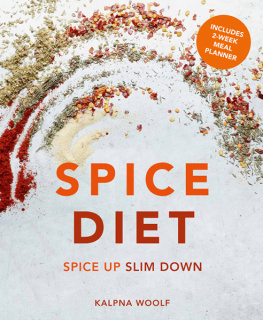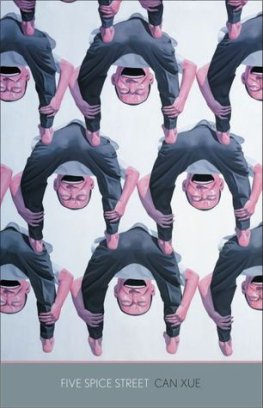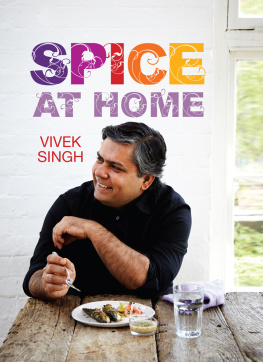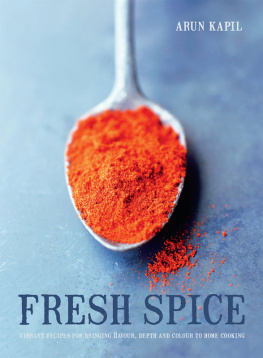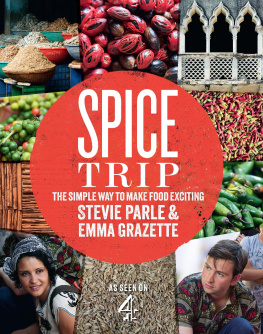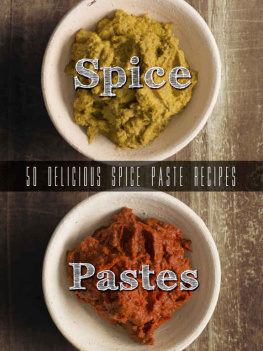Kalpna Woolf - Spice diet : spice up slim down
Here you can read online Kalpna Woolf - Spice diet : spice up slim down full text of the book (entire story) in english for free. Download pdf and epub, get meaning, cover and reviews about this ebook. year: 2020, genre: Home and family. Description of the work, (preface) as well as reviews are available. Best literature library LitArk.com created for fans of good reading and offers a wide selection of genres:
Romance novel
Science fiction
Adventure
Detective
Science
History
Home and family
Prose
Art
Politics
Computer
Non-fiction
Religion
Business
Children
Humor
Choose a favorite category and find really read worthwhile books. Enjoy immersion in the world of imagination, feel the emotions of the characters or learn something new for yourself, make an fascinating discovery.
- Book:Spice diet : spice up slim down
- Author:
- Genre:
- Year:2020
- Rating:3 / 5
- Favourites:Add to favourites
- Your mark:
- 60
- 1
- 2
- 3
- 4
- 5
Spice diet : spice up slim down: summary, description and annotation
We offer to read an annotation, description, summary or preface (depends on what the author of the book "Spice diet : spice up slim down" wrote himself). If you haven't found the necessary information about the book — write in the comments, we will try to find it.
Spice diet : spice up slim down — read online for free the complete book (whole text) full work
Below is the text of the book, divided by pages. System saving the place of the last page read, allows you to conveniently read the book "Spice diet : spice up slim down" online for free, without having to search again every time where you left off. Put a bookmark, and you can go to the page where you finished reading at any time.
Font size:
Interval:
Bookmark:

SPICE UP SLIM DOWN
KALPNA WOOLF

For my Dad,
to whom I owe so much, who came to this country to give us all a better life and was so proud of his children. He loved to buy fresh fruit and vegetables for us to eat every day and taught me so much about good food, health, sharing and love.

Spices are powerhouses of flavour and health with the crucial benefit of being calorie and fat free. Spice Diet is a simple and healthy way to enjoy tasty food whilst also maintaining good health. This is not an invented contemporary fad; it has a strong foundation in centuries old knowledge and traditions. Spice Diet reveals the secrets of one of the oldest and most valued, mystically powerful food sources known to mankind, and shows how spices can have a dramatic impact on our health, lifestyle and well-being.
Spice Diet guarantees weight loss whilst allowing you to enjoy flavourful food at every meal. Western tastes are ever more receptive to spices: from traditional (cloves, cinnamon, fennel); Indian (chilli, garam masala, turmeric, coriander) and Mexican (smoked chipotle chillies); to Chinese (Szechuan, Five spice, star anise) and Middle Eastern spices (Sumac, Zaatar, Ras el-Hanout). Yet we still know very little about their history and ability to improve our diets. This book unlocks their magic, fusing traditional spice secrets with simple, modern recipes.
I was brought up eating Indian spices and home-cooked food. However, when I moved away from home, I moved away from my food roots too and was tempted by the growing proliferation of fast food. Instant food availability and the addictive effect of high fat, high salt, sugars and colours. I soon began to feel and look tired and began to put on weight. Even when I cut down on calories and felt I was eating less, I was still hungry and not managing my weight well.
Over the years I began to learn more about food and the effects of it on our health, energy levels and our weight. I realised that I wanted to eat healthily and feel full; to enjoy my food and to have a good relationship with it. But I didnt want to eat bland, flavourless and often insipid-looking diet foods. I wanted to eat food with lots of flavour, to enjoy dishes from around the world, and share foods with my family. I discovered that when I balanced spices with healthy food my weight reduced and then stayed down.
Spice Diet is very much the story of the food journey I have travelled: from my roots growing up in a traditional Indian family in London; to university where, whilst studying Russian, I lived in Soviet Russia; returning home to learn how to cook traditional British dishes; and travelling since to experience cuisines first hand in Iran, China, Italy and then Thailand, Morocco, Mexico, the Mediterranean, the Far East and West Africa.
I still use spices every day I love the tastes, flavours and the good feeling I get from just cooking a meal with them. Seeing the rich colour when I add turmeric to a dish, I am instantly transported to the bustling alleys of Old Delhi where turmeric powder is piled high in large sacks. Spices are sumptuous in colour, taste and history, evoking wonderful journeys across deserts, land and sea, to countries where they are so valuable they have been used as legal tender.
Spice are relished not only for their taste, but also because they come with stories of their health powers from one generation to another. My family and many Indian people I know, use remedies made from spices still for many ailments and strength. If anyone in my family has a bad tummy, everyone rushes for the carom seeds which are then mixed with a sprinkling of salt and swallowed down with a little warm water: a remedy going as far back as my great, great, grandmother.
As well as these family anecdotes, we now see scientific research confirming the health properties of spices. Turmeric has been used as an anti-inflammatory for years in Ayurvedic medicine and now scientific research shows that an active compound in turmeric, curcumin, could help reduce inflammation.
Cooking with spices really doesnt have to be intimidating or difficult. In Spice Diet I hope to demystify this and show how easily spices can be incorporated into our daily eating habits whilst capitalising on all those benefits to our health and well-being. That really is the magic allure of spices.

Spices are part of the worlds food, trade and medicinal history. History recounts stories of colourful traders travelling from around the world on horseback, on ships and on foot handing over gold and silver coins for bags of wonderful spices. World markets teetered and thrived on the price of spices. Fantastic legends were weaved about the difficulty and rarity of spices so that the price could be held high (Arab traders told stories of cinnamon being carried by huge birds high into their nests. The birds would be lured down by tempting meats and, as they returned with the heavy meat, the nest would fall down with the cinnamon). Spices came from all over the world and, like plants, slowly germinated in parts of the world from which they hadnt originated.
When we think of spice traders, we think of men journeying from the East, but trade history shows a complex network from all over the world in the sale and use of spices from India to Egypt to England to South America, China and to Africa and back again. Records go as far back as to at least the ancient Egyptians. For centuries spices have been traded for their taste, their healing powers and their preservative properties. This made them valuable and even gave some of them mystical powers; for example, cumin was thought to be strength-giving so was carried by the Romans on their long marches and added to staple foods like bread. Some spices were used to ward off evil. Spices that warm when eaten, like cinnamon, chilli and cardamom, were thought of as aphrodisiacs and were prescribed to warm up lovemaking too! Early Chinese archives mention using spices with herbs to support overall health.
Before refrigeration, certain spices were discovered to be good preservatives for curing meats so they could be kept longer. This power raised their value enormously and, of course, the aroma of certain spices helped to overpower the sometimes pungent smell of the meat.
Records going back to Before Christ (BC) show that spices have been used for health and as medicines. Certain spices were burned as a remedy for headaches and others were used to work as anaesthetics and to heal wounds more quickly. Coriander seeds have been found in Egyptian tombs and they have been cited in records as being used for headaches and muscular pain. What is interesting is that not all the spices recorded in Egyptian times were indigenous to Egypt, so they must have been carried from other parts of the world, and certainly cinnamon was one of those spices.

Font size:
Interval:
Bookmark:
Similar books «Spice diet : spice up slim down»
Look at similar books to Spice diet : spice up slim down. We have selected literature similar in name and meaning in the hope of providing readers with more options to find new, interesting, not yet read works.
Discussion, reviews of the book Spice diet : spice up slim down and just readers' own opinions. Leave your comments, write what you think about the work, its meaning or the main characters. Specify what exactly you liked and what you didn't like, and why you think so.

